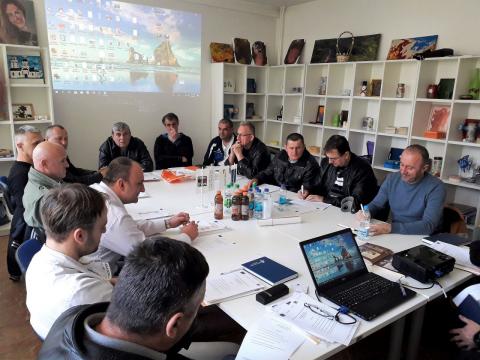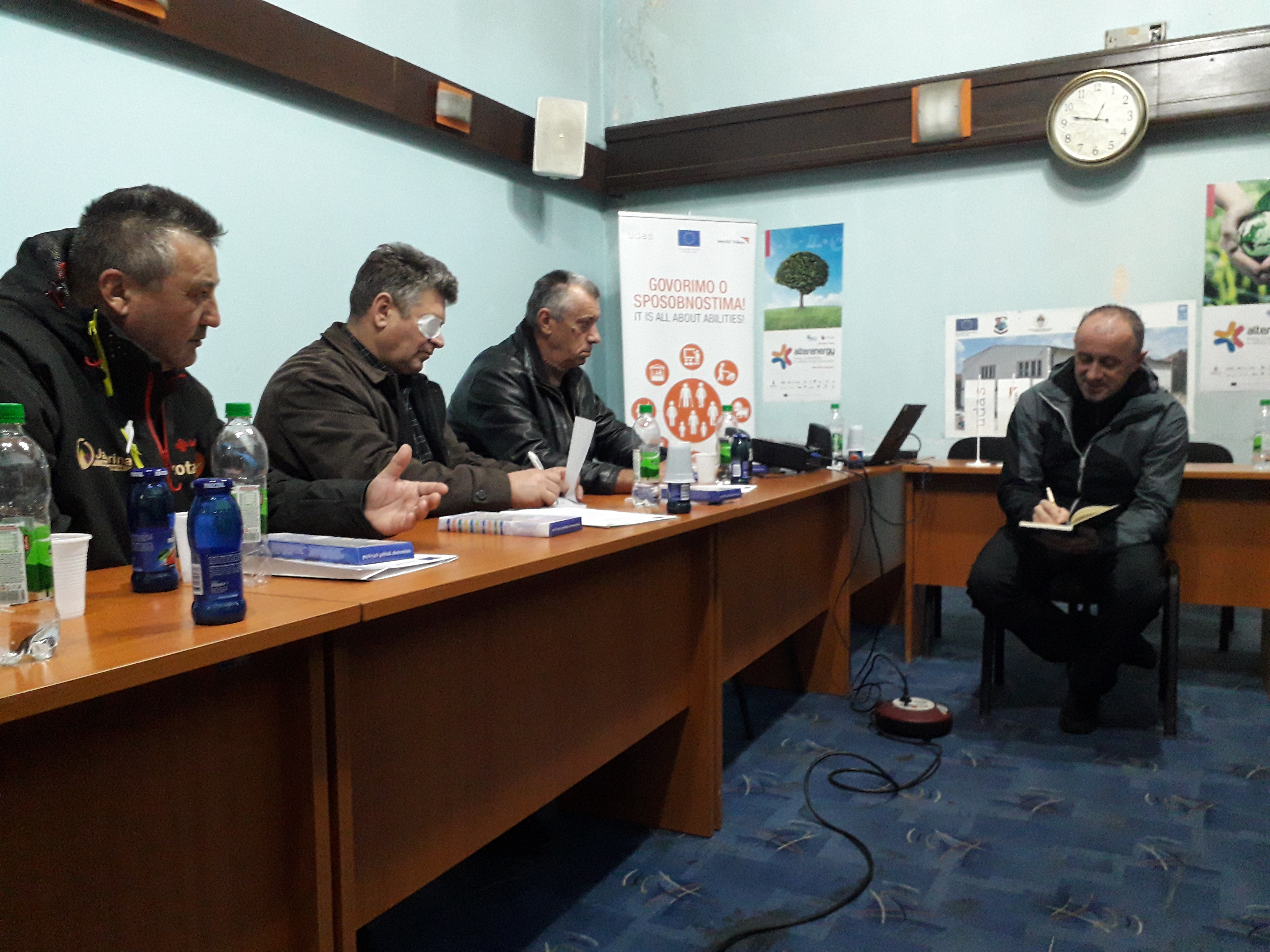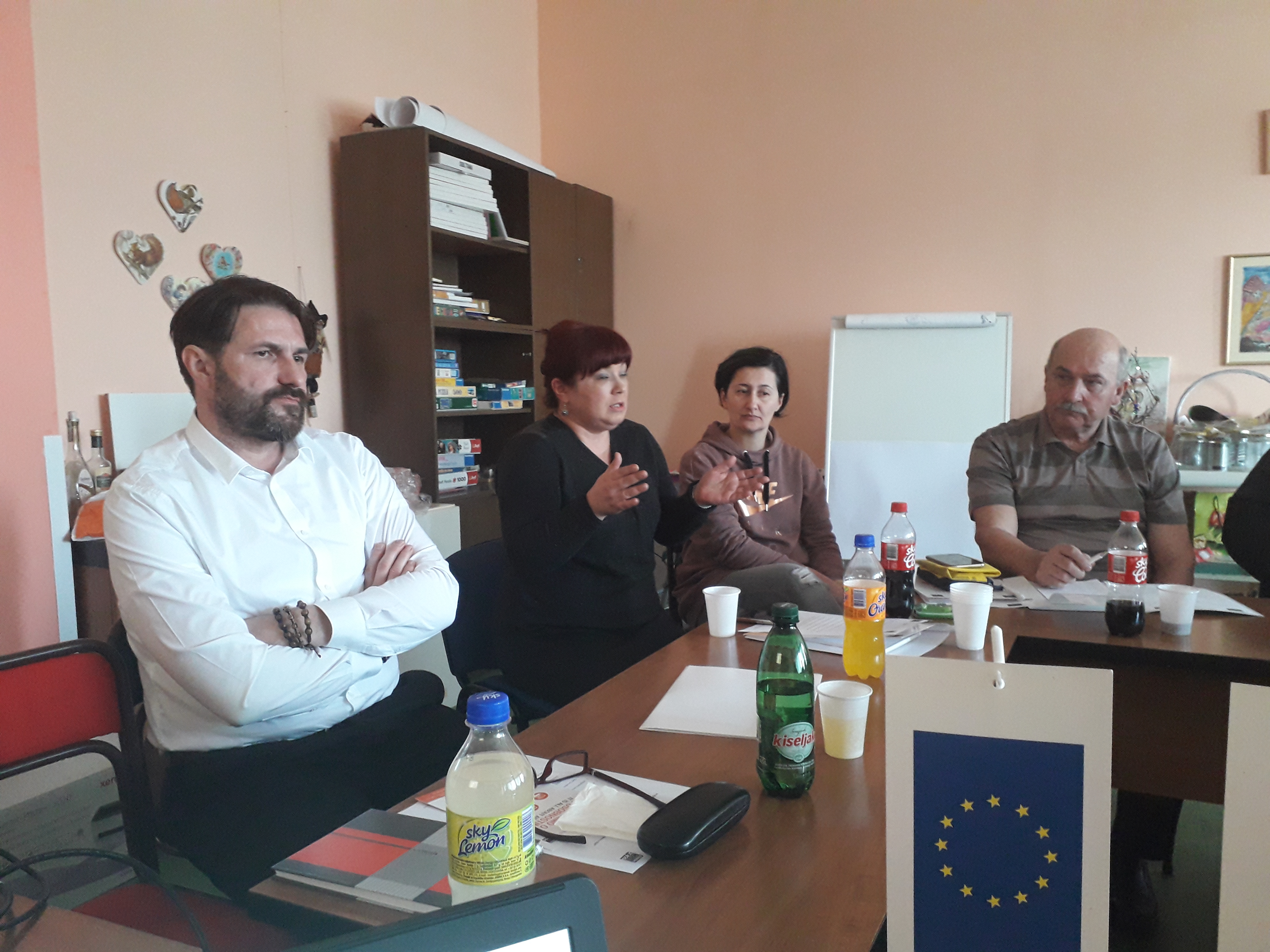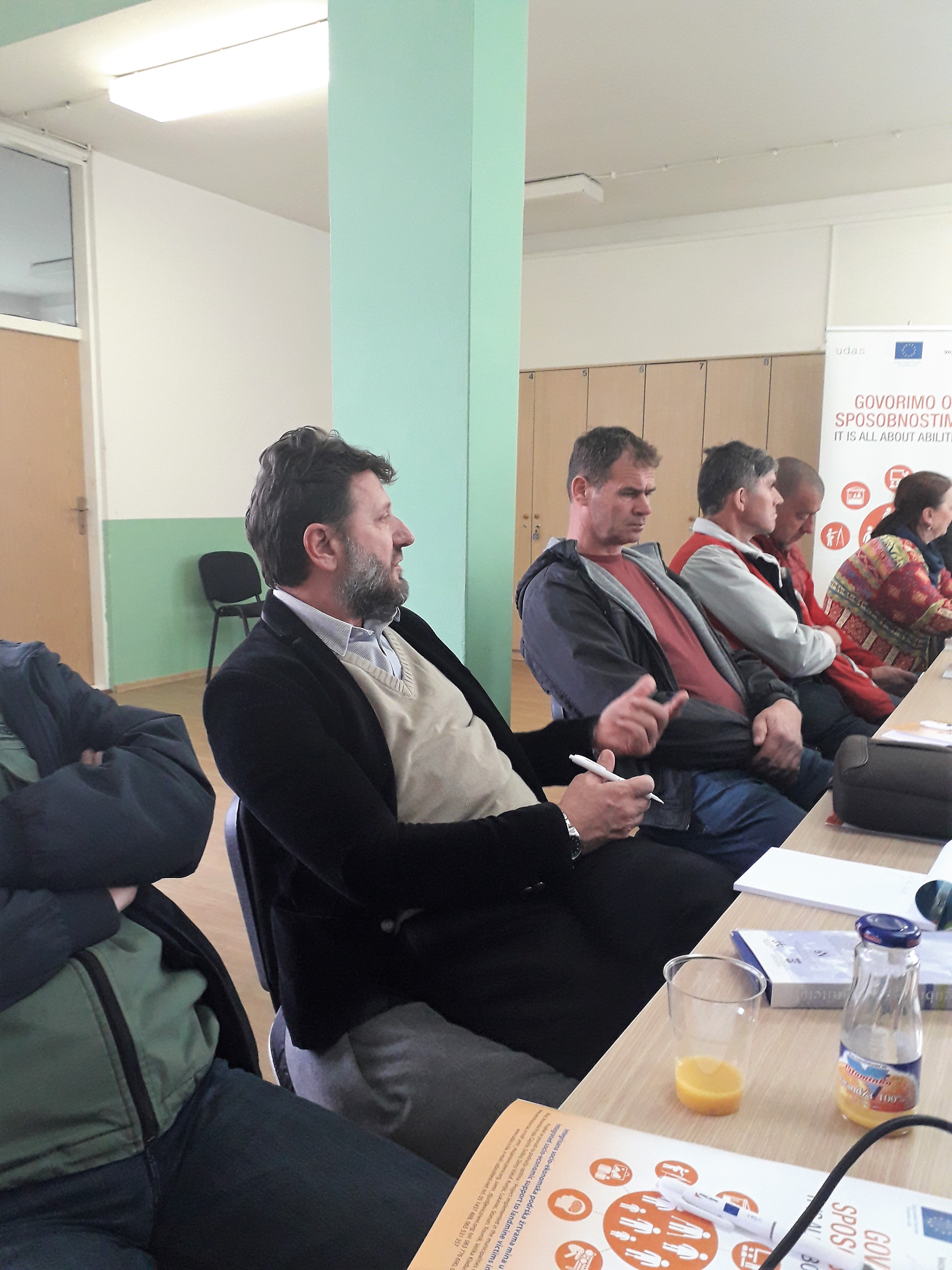Survivors strengthen CBR programs in local communities

By Amir Mujanovic
Physical rehabilitation and mental health services are critical elements for the rehabilitation of all those recovering from diverse physical or psychological traumatic events. The increasing number of people in need for these services after the war has led to the establishment of community based rehabilitation (CBR) programs within the structure of primary health care institutions in 60 local communities, throughout BiH.
The European Union recognized the importance of rehabilitation for the overall well-being of landmine survivors and included this element in the support package. Project "Integrated socio-economic support for landmine victims in BiH” with World Vision and Organization of amputees UDAS, as project implementers, paid special attention to raising the capacity of the staff of centers for mental health and centers for physical rehabilitation in 11 selected municipalities. During a 3 days workshop, the rehabilitation staff got familiarized with key challenges faced by landmine survivors in the process of their rehabilitation and integration and the usefulness of peer support i.e. the experience of survivors at the service of rehabilitation of other survivors.

Survivors from Cajnice at the landmine survivors support group
From February to June 2019, World Vision and UDAS organized 9 landmine survivors support group meetings in distinct municipalities. The objective was to introduce the peer support concept and a working method in the on-going community-based rehabilitation programs.
In all visited municipalities, from Bosanska Krupa, Bihac, Velika Kladusa, through Cajnice, Doboj, Zvornik, Konjic, Travnik, to Lukavac, we have witnessed the enthusiasm of mine survivors to participate in peer support groups and the willingness of rehabilitation centers to incorporate peer support in their traditional type of services. More than 60 survivors and 30 employees from the centers for mental health, centers for physical rehabilitation and centers for social work participated in the events promoted by the project.
It was comforting to listen to survivors and rehabilitation professionals’ sharing experience on peer support and group therapy. The staff of the centers for mental health centers in Velika Kladusa and Doboj reminded that they had limited experience in organizing support groups for landmine survivors in cooperation with local associations of amputees and they both speak one voice that “survivors who have progressed in their rehabilitation are well suited to provide peer support”. Their colleagues from Travnik talked about supporting a group of miners – survivors of the accident in the coal mine.

Rihard Skopljak, landmine survivor, shared his experience on peer support during a support group session in Center for Mental Health Bihac
Rihard Skopljak, a survivor from Bihac, explains in a simple way the positive therapeutic effect of empathy and support from a colleague who has gone through similar challenges and recovered successfully. “I was injured when I was 20 and accepted my loss relatively well, but some of my peers did not. Their parents used to take them to me to talk to them. And we talked about trivial, everyday things. This made some of them to gradually restore their confidence and to focus on their rehabilitation”. Rihard has apparently emphasized listening skills as a key requirement for survivor to become a peer supporter and to be offered as role model of survivorship and resilience to other survivors to follow and look up to.
Survivors face different challenges in some municipalities. The small municipality of Cajnice has a relatively large number of survivors, who seem to lack basic information about entitlements regarding prosthetic devices and spa treatments. They carefully listen to their fellow survivor Zeljko Volas from UDAS and information he shares about survivor’s rehabilitation rights.
Elharun Selimovic, an experienced clinical psychologist from Centre for Mental Health Konjic, briefly summarizes his understanding about peer support: “While listening today to mine survivors - my fellow citizens from Konjic, I would say that their experience of successful recovery can be useful to other trauma survivors. First they need to face the facts and accept the changed reality, then they decide to move on and make a plan how to do it, then they reach out to others - because no one succeeds alone - and finally they do help others in their community and contribute to progress."
 Elharun Selimovic, clinical psychologist from Centre for mental health Konjic, summarizes importance of peer support in recovery of traumatic event
Elharun Selimovic, clinical psychologist from Centre for mental health Konjic, summarizes importance of peer support in recovery of traumatic event
World Vision and UDAS use peer support in their programs. World Vision uses peer support as a tool to train peer supporters to prevent school violence, while UDAS uses it to empower amputees and other persons with disabilities. Both organizations have firsthand experience on peer support and are convinced that involving survivors in promoting and improving local rehabilitation services is a good practice to be further developed depending of the local context.
The project has succeeded to bring together health professionals and survivors to promote mental health services and survivors' participation in improving local rehabilitation service through coordinated action. Local centers for mental health demonstrated great interest to integrate peer support as their regular psycho-social support program. They are now on good track to advance coordination with other relevant institutions in local communities and to identify and build the capacity of the most suitable survivors as peer supporters in order to have fully functional peer support service.